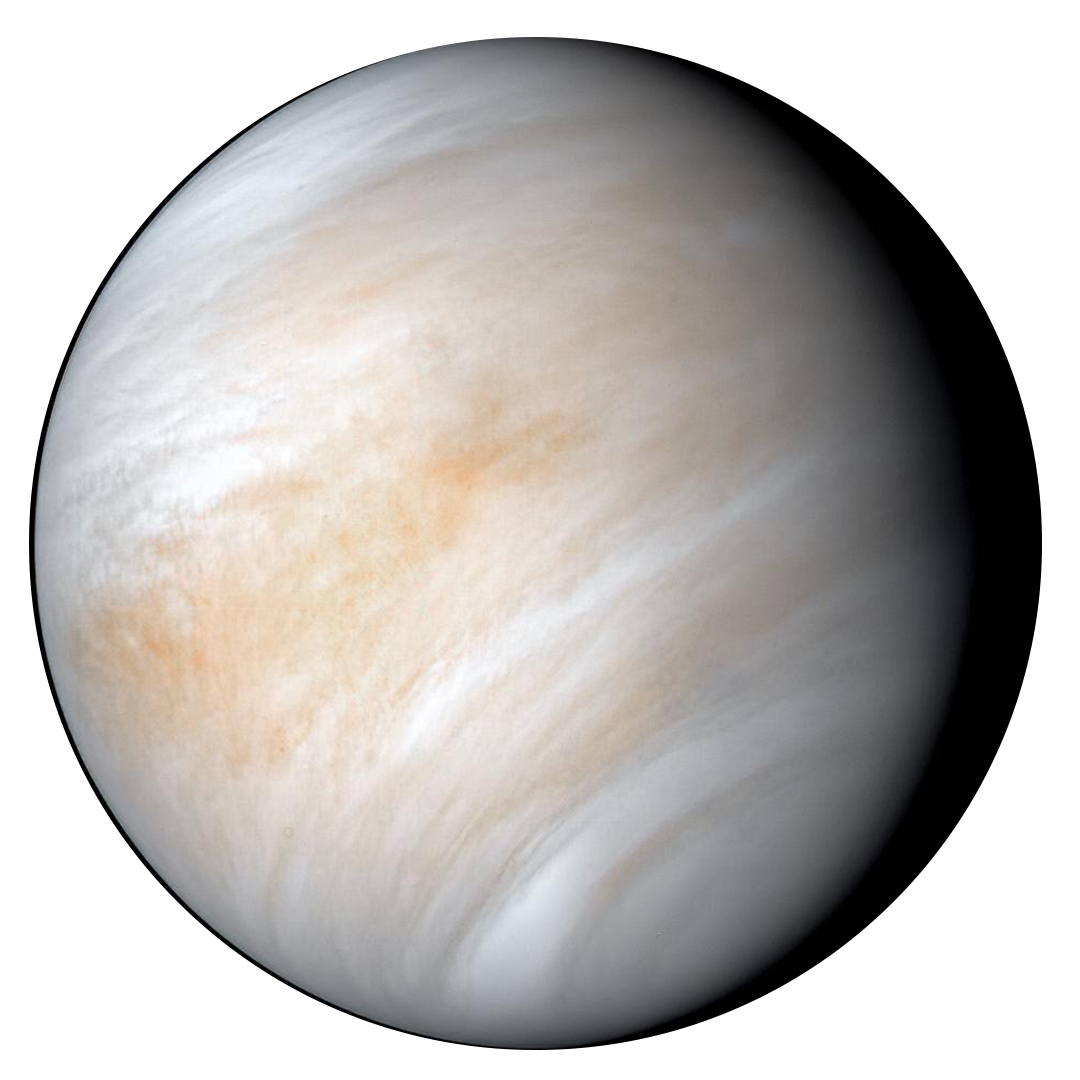Solar system > Venus
Similar in size and structure to Earth, Venus has been called Earth's twin. These are not identical twins, however – there are radical differences between the two worlds.
Venus has a thick, toxic atmosphere filled with carbon dioxide and it’s perpetually shrouded in thick, yellowish clouds of mostly sulfuric acid that trap heat, causing a runaway greenhouse effect. It’s the hottest planet in our solar system. Venus has crushing air pressure at its surface – more than 90 times that of Earth – similar to the pressure you'd encounter a mile below the ocean on Earth.
Did You Know?
The Soviet Union’s Venera 13 survived the intense heat and crushing pressure of Venus’ surface for more than two hours. Engineers from several nations are currently studying methods to extend the life of robotic spacecraft in the extreme environment.

-
Average distance from Sun
108,209,475km
-
Lenght of year
225 Earth days
-
Planet type
Terrestrial
-
Moons
0
-
Namesake
Roman goddess of love